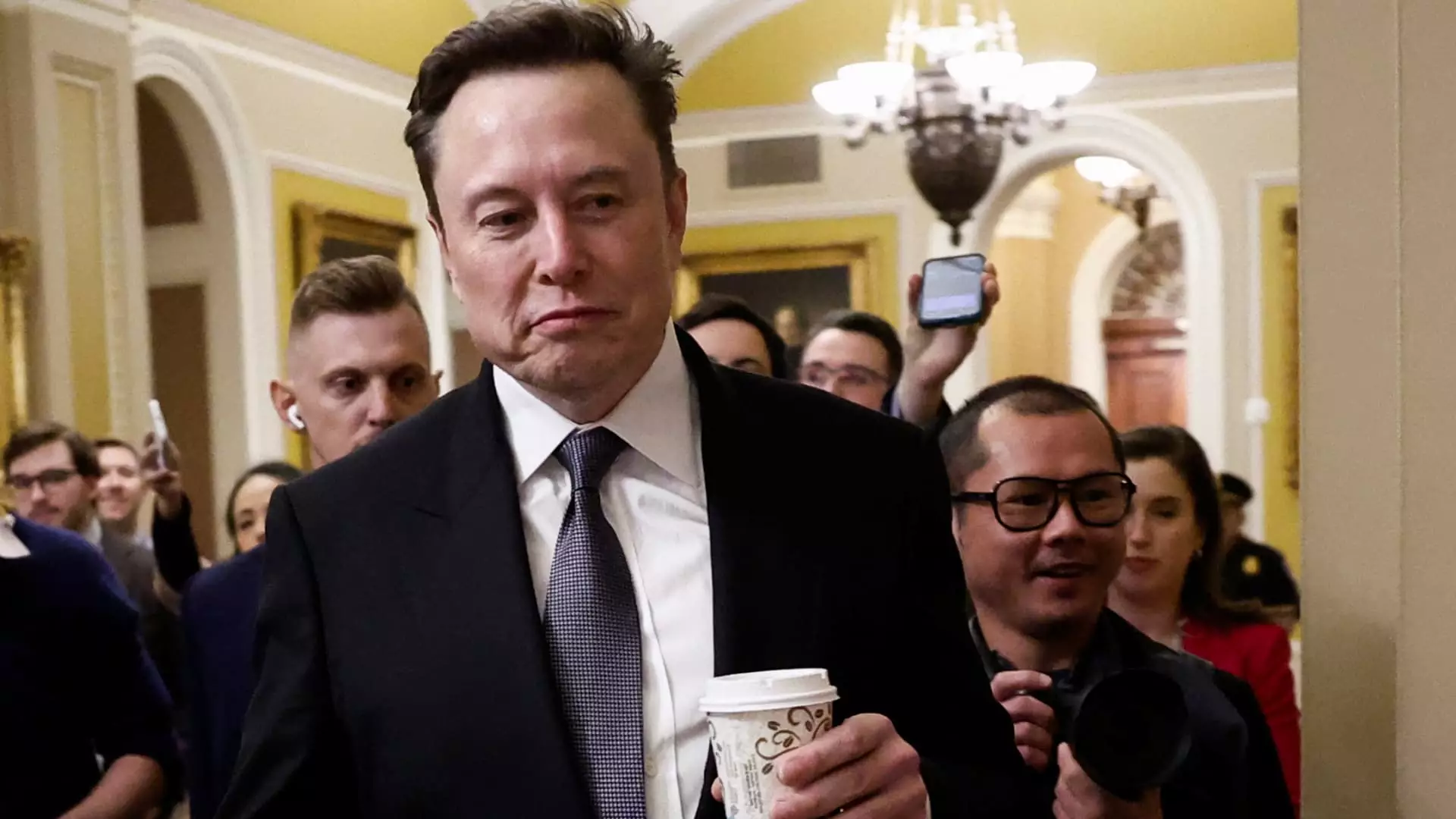The recent interplay between politics and technology, underscored by the actions of House Democrats Jim McGovern and Rosa DeLauro, reveals a concerning trend in U.S. governance. Their strong criticism of Elon Musk, particularly in relation to a bipartisan government funding bill designed to regulate American investments in China, opens up broader discussions about corporate influence on policy and the implications of such entanglements for national security.
The Failed Bipartisan Effort and Musk’s Role
McGovern and DeLauro accuse their Republican counterparts of pandering to Musk, suggesting that this resulted in the collapse of a necessary bipartisan effort aimed at safeguarding American technological innovation. The legislation in question would have potentially curtailed the outflow of advanced technologies, particularly in the realms of artificial intelligence and quantum computing, to nations with rising geopolitical tensions with the U.S., such as China. McGovern’s assertions on social media emphasize a lost opportunity to solidify America’s position in advanced tech while simultaneously curtailing job outsourcing. This sentiment raises an important question: to what extent are individual billionaire interests influencing legislative processes?
Musk’s unique position as the head of Tesla, a company operating in China without a local joint venture, complicates matters significantly. The company’s ambitions extend beyond merely selling cars; it includes the development of battery technologies and, notably, autonomous vehicle systems. Musk’s necessity to maintain favorable relations with the Chinese government is a clear conflict of interest. In this light, examining Musk’s motivations reveals a possible prioritization of corporate interests over national security concerns, echoing a broader narrative of businesses leveraging political connections for expedient gains.
National Security Implications
The issues surrounding Musk expand beyond corporate ambitions to encompass significant national security implications. The potential establishment of an AI data center in China raises alarm bells not only for lawmakers like DeLauro but etches a growing sentiment of unease within the broader public sphere. These technologies, if misappropriated, could place sensitive U.S. information and strategic capabilities at risk, effectively weakening America’s competitive edge against adversaries. McGovern’s pointed remarks indicate that this isn’t merely a partisan battle; it’s a risk to the very fabric of U.S. innovation and a gamble with the nation’s technological future.
Furthermore, the geopolitical backdrop provides additional context to the situation. Musk’s apparent willingness to comply with Chinese demands—exemplified through actions like withholding Starlink internet services over Taiwan—underscores a troubling trend in which a private individual’s decisions could inadvertently compromise broader national interests. These decisions, when taken in conjunction with Musk’s influential relationship with political figures such as Donald Trump, complicate the narrative further, suggesting a fraying line between corporate and state interests.
As the political landscape evolves, the collision of Musk’s personal ambitions with national policymaking intensifies. The undermining of the bipartisan funding bill, especially in the context of Republican pressures, hints at a dangerous precedent where legislative priorities can easily be swayed by influential individuals. DeLauro’s reference to Musk as “President” draws attention to the alarming merging of corporate power and political clout, which poses a challenge to the traditional checks and balances that govern U.S. politics.
Moreover, Musk’s substantial financial contributions to Republican causes and his visible alignment with Trump indicate a deepening intersection between business influence and political direction. Consequently, it begs the question of accountability. With significant donations often resulting in substantial political favors, can the integrity of policymaking remain intact when financial power has become inseparable from political clout?
In light of these events, it is crucial for both citizens and policymakers to engage in a candid dialogue about the relationship between big business and governance. Legislative leaders must reflect on the ramifications of allowing corporate interests to dictate public policy, especially regarding national security and technological advancement. The pressing need for a regulatory framework that draws clear boundaries between corporate pursuits and national interests is more critical now than ever. Failure to address these issues may lead to a sustained erosion of public trust in democratic institutions, ultimately jeopardizing the values that underpin U.S. governance.
Emerging from these complexities is a call to action for transparency and integrity in both the technology sector and political arenas. Balancing innovation with the necessary safeguards to protect national interests should transcend political divisions, promoting a unified approach that centers on the holistic well-being of the nation rather than individual profit.

